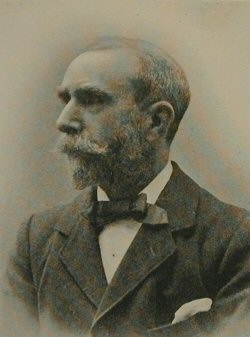 DAVID FULTON
DAVID FULTON DAVID FULTON
DAVID FULTON BORN amid rural surroundings at Parkhead, when that place
could still call itself a village, Mr. Fulton from childhood evinced a strong
liking for pictures, and a taste for drawing which was fostered by his
schoolmaster, the late Thomas O'Beirne of Annfield Academy, who was an
enthusiastic teacher of the art. About the age of fourteen he was apprenticed to
a commercial engraver, and though the work proved distasteful, he learned
something of painting from the craftsman, no mean amateur, under whom he
wrought. About the age of sixteen he entered the School of Design in Ingram
Street under Mr. Greenlees, who gave him every encouragement, but the pupil's
real pleasure came when, on holidays, he could indulge in solitary sketching
from nature. His apprenticeship over, he began business for himself as an
engraver, in the hope of finding more time to paint. Then gradually art became
the mistress, and engraving a burden. In 1872, in the Corporation Galleries, he
exhibited his first picture, which was sold on the opening day. Years afterwards
he discovered the buyer to have been Mr. David Kennedy. He was unanimously
elected a member of Glasgow Art Club in 1875, and fifteen years later was
elected a member of the Royal Scottish Society of Painters in Water Colours. He
is also a member of the Royal Glasgow Institute of the Fine arts. He has
successfully exhibited paintings in the Royal Academy and at all the principal
exhibitions in Britain, as well as at Paris, Berlin, Venice, Munich, Hanover,
Prague, Dresden, Copenhagen, and other cities on the Continent. At these
continental exhibitions he has sold many pictures, and had several reproduced,
while Prague and Padua have both acquired examples of his work for their public
galleries. He has also shewn paintings in New Zealand and America, and in the
latter case was specially invited to send his work "Autumn Sunshine" to the
International Exhibition at St. Louis.
In such works lie Mr. Fulton's specialty - figure and
landscape combined, but some of his greatest successes have been in landscape
and sea subjects.
Back to
Index of Glasgow Men (1909)